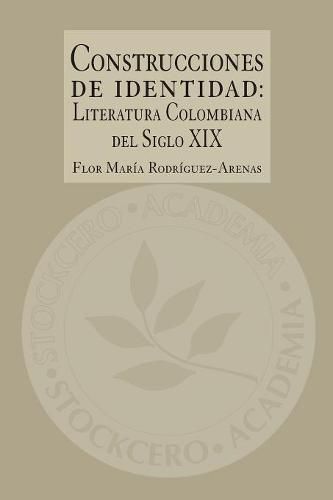Readings Newsletter
Become a Readings Member to make your shopping experience even easier.
Sign in or sign up for free!
You’re not far away from qualifying for FREE standard shipping within Australia
You’ve qualified for FREE standard shipping within Australia
The cart is loading…






This title is printed to order. This book may have been self-published. If so, we cannot guarantee the quality of the content. In the main most books will have gone through the editing process however some may not. We therefore suggest that you be aware of this before ordering this book. If in doubt check either the author or publisher’s details as we are unable to accept any returns unless they are faulty. Please contact us if you have any questions.
This book is a collection of essays that explore how in the 18th and 19th centuries the Colombian society struggled to understand the forces that changed the status quo and articulated the (trans)national identities in their personal lives, as well as in their narratives.
The uprisings at the end of the 18th century, the Independence, and the consequent revolutions of the 19th century transformed the Colombian social life. The values, the traditions, the daily spaces of colonial life changed to give way to new habits, forms of life, and system of values of the new society.
People started occupying new spaces, developing different social roles, producing a variety of representations of the collective social structuring process. These were the times of the birth of the nation, times of high stakes on the personal, social and national identities definition. Men and women adopted diverse courses of action to govern their conducts; so this personal development provided them diverging ways of thinking and acting, based on their own discernment that turned some of them in compelling critics towards the deeply unequal society that they had inherited.
The present essays delve on cultural and personal manifestations of the identity configuration: The poetry about Independence; The formation of the public opinion in La Miscelanea (1825-1826); The written Legend as expression of the Colombian cultural identity; Soledad Acosta de Samper’s predecessors (Acosta-Kemble); Eugenio Diaz Castro’s Manuela. Novela Bogotana; The Representations of Efrain in Jorge Isaacs’ Maria; The circumstances of the Colombian novel between 1846 and 1867.
$9.00 standard shipping within Australia
FREE standard shipping within Australia for orders over $100.00
Express & International shipping calculated at checkout
This title is printed to order. This book may have been self-published. If so, we cannot guarantee the quality of the content. In the main most books will have gone through the editing process however some may not. We therefore suggest that you be aware of this before ordering this book. If in doubt check either the author or publisher’s details as we are unable to accept any returns unless they are faulty. Please contact us if you have any questions.
This book is a collection of essays that explore how in the 18th and 19th centuries the Colombian society struggled to understand the forces that changed the status quo and articulated the (trans)national identities in their personal lives, as well as in their narratives.
The uprisings at the end of the 18th century, the Independence, and the consequent revolutions of the 19th century transformed the Colombian social life. The values, the traditions, the daily spaces of colonial life changed to give way to new habits, forms of life, and system of values of the new society.
People started occupying new spaces, developing different social roles, producing a variety of representations of the collective social structuring process. These were the times of the birth of the nation, times of high stakes on the personal, social and national identities definition. Men and women adopted diverse courses of action to govern their conducts; so this personal development provided them diverging ways of thinking and acting, based on their own discernment that turned some of them in compelling critics towards the deeply unequal society that they had inherited.
The present essays delve on cultural and personal manifestations of the identity configuration: The poetry about Independence; The formation of the public opinion in La Miscelanea (1825-1826); The written Legend as expression of the Colombian cultural identity; Soledad Acosta de Samper’s predecessors (Acosta-Kemble); Eugenio Diaz Castro’s Manuela. Novela Bogotana; The Representations of Efrain in Jorge Isaacs’ Maria; The circumstances of the Colombian novel between 1846 and 1867.